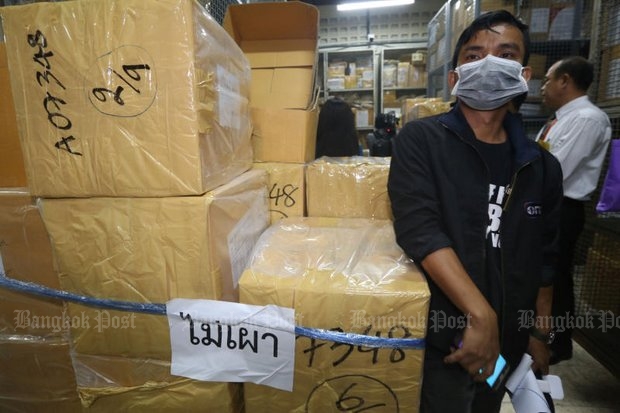
The Food and Drug Administration (FDA) is weighing public criticism of a proposal to take methamphetamine, or ya ba, off the dangerous narcotics list, but still hopes to move away from crackdowns on the currently illicit drug in support of rehabilitation for addicts.
Amid concerns the reclassification will send the wrong signal to the public, FDA secretary-general Boonchai Somboonsook said Tuesday that while the idea is "interesting", a thorough study of the benefits of meth is needed. He expected the delisting "will not occur soon".
Many countries have been using methamphetamine in rehabilitation programmes for drug offenders who are treated as patients. They provide meth to patients but gradually lower the amount until patients can give up taking meth, Dr Boonchai claimed.
However, Thailand has used other methods, not meth, to cure patients.
Dr Boonchai said rehabilitation programmes, carried out mainly by agencies in communities, are not successful as most patients relapse and take drugs again. One reason is patients are stuck in difficult surroundings which tempt them back into drugs.
Methamphetamine, known locally as ya ba, is a type of amphetamine stimulant which affects the central nervous system. Meth is often used as a major component of ya ba. Removing meth from the illicit narcotics list does not mean it will not be under watch, Dr Boonchai said. Authorities must continue controlling its usage in a "very, very strict manner" if the proposal comes into effect, he said.
It is known that meth has some beneficial qualities, but like morphine, its use is currently not allowed unless doctors give permission, he said. The idea to remove meth from the list was proposed last week by Justice Minister Paiboon Koomchaya, who took his lead from the 2016 UN General Assembly Special Session on Drugs.
Gen Paiboon introduced the proposal in the context that Thailand has been trying hard to crack down on drugs, including ya ba, but has had little success as there are still many drug offenders. The minister agreed with many countries that a new approach to the drug problem is needed as harsh measures against wrongdoing may not always be successful.
Instead of eradication, he said, authorities may need to find ways to live with drugs, looking for methods to control them in a way that they do with incurable diseases. "We need new measures to deal with drugs," Dr Boonchai said, adding more than 70% of drug convicts are now the addicts, not traders or producers.
Meanwhile, the FDA is gearing up to incinerate 5,136 kilogrammes of drugs worth more than 10 billion baht, comprised largely of ya ba pills, in Ayutthaya on the International Day against Drug Abuse and Illicit Trafficking on June 26.
